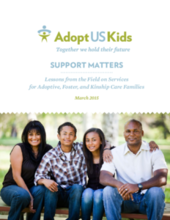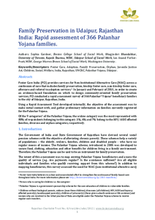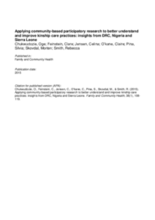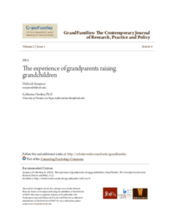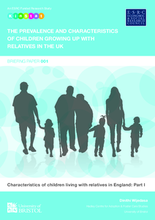Displaying 391 - 400 of 608
This one-page presentation outlines the research questions, data, methods, results, literature review, discussion and implications of a study that looked at the effects of a child’s relationship to head of household, age, and orphan status on the severity of discipline they receive in Ghana, Iraq, Costa Rica, Vietnam,and Ukraine.
This report aims to provide the basis for an agenda to improve university attendance among care leavers in Australia by highlighting the nature and extent of the problem, and suggesting practical solutions within both the education and community service sectors.
This guide is intended to equip State, Tribal, and Territorial child welfare managers and administrators — as well as family support organizations — with current information about effective strategies for developing data-driven family support services and research findings to help them make the case for implementing and sustaining these services.
This easy to use resource from the Ministry of Gender Labour and Social Development in Uganda, in consultation with civil society, outlines a continuum of care framework for responding to vulnerable children.
In January and February of 2015, in order to create an evidence-based foundation on which to design community-oriented family preservation services, FCI conducted a rapid assessment survey of 366 Palanhar Yojana beneficiary families in the city of Udaipur, Rajasthan, India.
The purpose of this qualitative study was to understand the experiences of grandparents in the US and the challenges they face raising their grandchildren.
This paper reflects on the experiences of Save the Children in implementing a multi-country community-based participatory research (CBPR) program to increase understanding of kinship care in DRC, Nigeria and Sierra Leone.
The purpose of this qualitative study was to understand the experiences of grandparents in the US and the challenges they face raising their grandchildren.
This briefing paper is the first in a series, from an Economic and Social Research Council (ESRC) funded research study. The study explores the prevalence and characteristics of children growing up in kinship care in the UK using 2011 Census microdata.
This article describes a kinship navigator program for children and kin caregivers involved in Child Protective Services in-home treatment cases.


